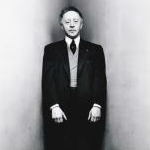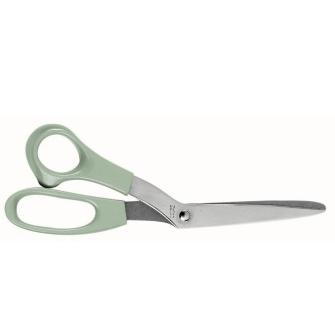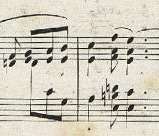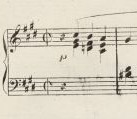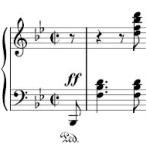Sound recordings from the first decades of the 20th century form a performance-practice treatise, documenting practices that may offer insight into music-making of earlier times. In the case of piano music, very many of these recordings are recordings of Chopin’s music. There are a lot of recordings of short pieces. (The length of one cylinder and later one “side” of a disc was around 3 minutes.) Chopin: Waltz in A Minor, op. 34, no. 2, Robert … [Read more...]
Cause or Effect?
Is written music a set of instructions? A student asked my opinion of a performance he described. In the performance, a pianist used the pedal to sustain long notes while taking his fingers off the keyboard. After thinking, I wrote: "I think the use of the pedal for sustaining notes or helping with legato depends very much on what music is being played. For me, in music by Brahms or Mozart, the central Germanic repertory, long notes must be … [Read more...]
Arts & Crafts
I'm printing slightly enlarged versions of the pages of a score by Philip Glass that I will play at the LPR Glass-birthday event later this month. The physical resizing, repaginating, and relineating of written music sometimes makes practicing and performing easier. For a long time, this work was accomplished with photocopying, scissors, or paper cutter, and adhesive tape. The pianist Judith Gordon called it "arts and crafts." Some outsized … [Read more...]
Voice Mis-Leading
Some solo piano music has part-writing that seems to correspond directly to music for string quartet. In such keyboard music, there are a constant number of "voices" tracing coherent individual lines. Beethoven: Opus 110 These voice-parts have integrity. We can follow tenor or bass, alto or soprano (viola or cello, second violin or first violin). This is a modern practice in keyboard music, I believe. The earliest keyboard pieces -- … [Read more...]
Used Up — or Barely Begun?
Is the most famous classical music so familiar, so often performed, that it's worn out? I've listened to Beethoven's "Appassionata" so frequently that it's rather difficult for me to hear the music, to accurately sense the real sound patterns being made on a particular occasion. (The mind slips into a "this-is-how-it-goes" mode that dulls perception.) Are icons like the Fifth Symphony or the opening of Carl Orff's Carmina Burana being used up as … [Read more...]
Scoreless
Just before playing a program that began with Chopin's Opus 45 Prelude, I started to think through the beginning of the music. Backstage in the green room, I had no piano and no copy of the written score -- and I couldn't recall the spacing, the exact arrangement of the notes, of the first chords in the piece. Solo pianists who play a lot of music by memory tend to be concerned about forgetting. For many pianists, it's the main focus of … [Read more...]
Extempore
In the Classical music world, it is as if most musicians have forgotten how to talk -- or never learned. They can't communicate with easy ordinary extemporaneous speech. Can't express themselves in daily conversation. Instead, only scripts -- the detailed record, the detailed notation, the traces of music. We are always reading, never speaking for ourselves. Never communicating just what's on our minds or in our hearts. We are mute, unless the … [Read more...]
One Hand
From the school's library I checked out again the copy of Messiaen's Le merle noir (The Blackbird) that I used last fall when I played the piece with Paula Robison. Since then, many markings were made in the piano part. I don't mark anything in the scores I use, but when I opened the music again there were all the things pianists write: dark circles drawn around printed dynamic markings, fingering, penciled-in lines showing correspondences … [Read more...]

